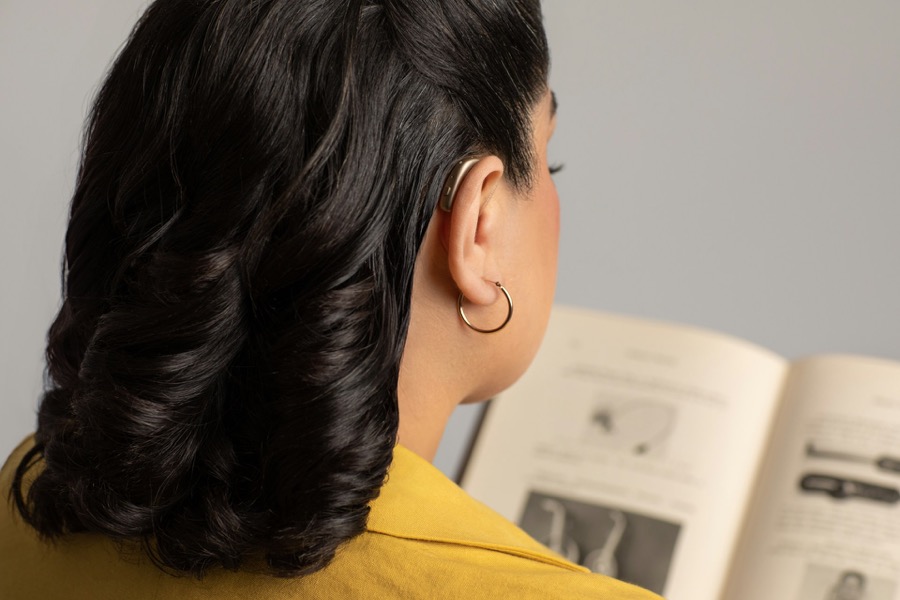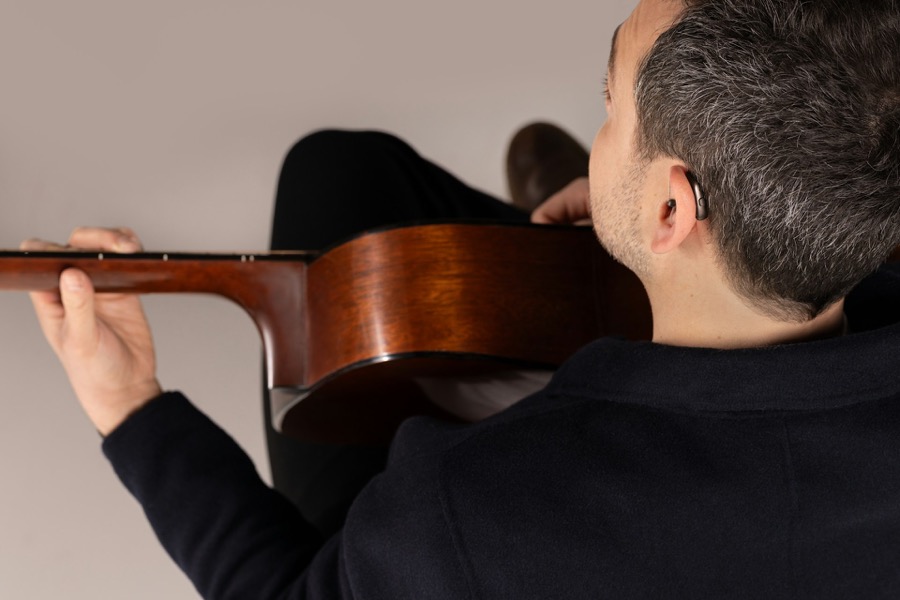Age-related hearing loss (ARHL) is one of the most common chronic health issues affecting older adults. The medical term is presbycusis.
- As we age, the hair cells in our inner ears gradually become damaged, decreasing our ability to hear.
- Over 30% of adults 65-74 and nearly half of adults over 75 experience have ARHL.
Why it matters
Untreated ARHL diminishes your quality of life and increases the risks of—
- Social isolation, loneliness, anxiety, depression
- Falling
- Cognitive decline and dementia.
ARHL is not reversible, but early treatment by an audiologist can help slow its progression and reduce the risk of damaging health conditions.
The symptoms
Symptoms of age-related hearing loss include —
- Difficulty understanding speech, especially in noisy places like restaurants
- Needing higher TV/radio volume
- Trouble with phone conversations
- Frequently asking people to repeat themselves
- Frustration from being unable to hear clearly
- Avoiding social situations

The causes
In addition to the slow loss of hearing from aging, other factors are often involved that worsen hearing loss such as—
- Long-term exposure to loud noise at work and in recreation
- High blood pressure
- Diabetes
- Smoking
- Genetic predisposition to ARHL (it runs in families)
- Ototoxic medications (drugs toxic to the sensory cells in the ears)
Treatment options for ARHL focus on improving everyday function and often include hearing aids and, for severe cases, cochlear implants.
- Seek help from an audiologist if you are experiencing symptoms of hearing loss.
- The sooner ARHL is addressed, the more successful the treatment will likely be.
The challenge: Because ARHL develops gradually, many only realize the extent of their hearing loss once loved ones point it out.
- Men experience more severe ARHL at an earlier age than women
- Genetic factors influence both severity and progression rate.

Can ARHL be prevented?
You cannot prevent ARHL, but you can slow it down and reduce the risk of severe presbycusis by doing the following:
- Wear earplugs when exposed to loud noise at work or during noisy recreation (concerts, sports, shooting sports).
- Turn down the volume of your audio entertainment, especially if you wear headphones or earbuds.
- Distance yourself from loud noise if you can’t protect yourself. For instance, position yourself away from the speakers at a concert.
- Stop smoking. Smoking affects your hearing, increasing the chance of early-onset ARHL.
- Take care of your overall health. Studies show a connection between ARHL and high blood pressure, stroke, diabetes, and coronary artery disease.
- Schedule annual hearing screenings: They only take 15 minutes. Early treatment produces superior results.
The takeaway
Pay attention to signs of ARHL. Early treatment will help you stay socially and cognitively engaged as you age.
Schedule a free hearing screening
Hearing loss is gradual and not benign. Untreated, it increases your risk of social isolation, falling, and dementia.
Check yours with a free, 15-minute hearing screening by an audiologist.
Call 708-599-9500 to schedule yours.
► For facts about hearing loss and hearing aid options, download The Hearing Loss Guide.
Don't let untreated hearing loss threaten your health and happiness.

